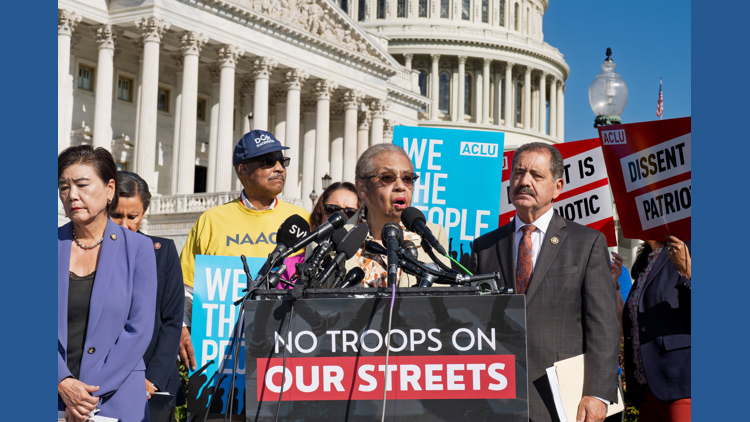Calls for Eleanor Holmes Norton to resign from her position as the District of Columbia’s delegate in Congress have intensified following Donald Trump‘s recent interventions in Washington. Norton has represented the District for 18 terms, advocating for D.C. residents’ rights and autonomy. However, in light of Trump’s comments and actions, critics are questioning her effectiveness and future in office.
During a press conference held on November 8, 2023, Trump criticized Norton’s leadership, suggesting that her long tenure has not yielded substantial progress for the district. He argued that the lack of statehood for the District of Columbia reflects poorly on her ability to champion its causes effectively. Trump’s remarks have sparked a wave of responses, with some constituents expressing frustration over perceived inaction on key issues.
Norton, a member of the Democratic Party, has long been a vocal proponent of D.C. statehood, emphasizing the need for equal representation in Congress. Her efforts include advocating for legislative measures that would grant the district full voting rights and autonomy. Despite her dedication, the effectiveness of her advocacy is now under scrutiny as political dynamics shift.
Supporters of Trump have joined the chorus calling for Norton to step down. They argue that her lengthy service has led to stagnation and that a change in leadership is essential for revitalizing the push for D.C. statehood. Critics contend that her experience and institutional knowledge are vital for navigating the complex political landscape.
As the debate unfolds, Norton remains resolute in her commitment to the district. In a statement following Trump’s comments, she reiterated her focus on legislative priorities, stating, “I will continue to fight for the rights of D.C. residents and ensure their voices are heard in Congress.” Her supporters continue to rally behind her, emphasizing the importance of experienced leadership in advocating for the district’s interests.
The political climate in Washington remains charged as constituents weigh the implications of this renewed scrutiny on Norton’s tenure. As discussions about D.C. statehood and representation continue, the future of its congressional delegate hangs in the balance.
Political analysts suggest that the controversy may influence the upcoming election cycle, with potential challengers emerging to contest Norton’s seat. Whether this intervention will lead to significant changes in D.C. leadership remains to be seen, but it has undoubtedly ignited a passionate debate surrounding representation and accountability in Congress.
In an environment where every vote counts, the call for new leadership reflects a growing desire for change among constituents who feel their needs have not been adequately addressed. As the situation develops, both Norton and her critics will be closely watched by voters eager for progress.
